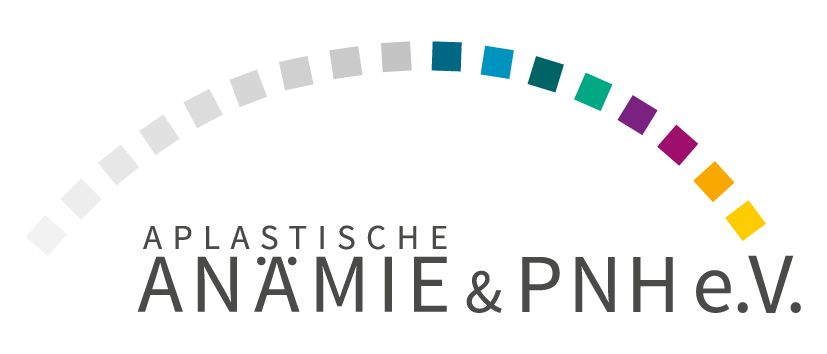Results of the PEGASUS study on APL-2
A recently published study from Leeds, England examines the effectiveness of the new drug pegcetacoplan on paroxysmal nocturnal hemoglobinuria (PNH). Pegcetacoplan has not yet been approved for PNH therapy in Europe, but approval is currently being examined by the European Medicines Agency (EMA). For this reason, we would like to briefly introduce the drug and the study to you and first take a brief look at the blood formation disorder underlying PNH in order to understand how Pegcetacoplan works:
Normally there are certain proteins on the surface of the red blood cells (erythrocytes), which transport oxygen through our body. Among other things, these regulate the immune system and prevent the erythrocytes from being broken down prematurely as they circulate through the body. At the PNH If these proteins are missing: Both in the blood vessels (intravascularly) and outside (extravascularly) the red blood cells are increasingly destroyed in the spleen and liver by part of the body’s own immune system – the complement system – (hemolysis). The consequence can be, among other things, a lack of erythrocytes in the blood (with reduced hemoglobin values) and a resulting need for blood transfusions.
The active substances already approved for PNH treatment in Germany are eculizumab and ravulizumab: The study described here examined the effectiveness of eculizumab in comparison with pegcetacoplan. Eculizumab, a so-called C5 complement inhibitor, primarily prevents the immune system from breaking down the red blood cells in the blood vessels , but has little influence on their premature breakdown in the spleen and liver . This is where the C3 complement inhibitor pegcetacoplan comes in, which unfolds its effect in both places. In the study, the total of 80 PNH patients initially received treatment with eculizumab and pegcetacoplan for four weeks. After the first four weeks, around half of the participants continued the therapy for a further 16 weeks with pegcetacoplan without eculizumab, the other half received exactly the opposite.
At the end of the study it was found that the patients receiving pegcetacoplan had significantly higher hemoglobin levels than the eculizumab group. They were also much less dependent on blood transfusions. When looking at the side effects, reactions at the injection site (the drug is administered under the skin) were more common with Pegcetacoplan treatment, as did diarrhea. Therapy with eculizumab resulted in haemolysis requiring treatment as well as headaches and fatigue more frequently.
The study was carried out on a rather small group of patients and, due to the relatively short period of 16 weeks, cannot provide any certainty about possible long-term treatment consequences, even if there currently does not seem to be any evidence of this. The decision of the EU Commission on approval is expected to be made this year on the basis of the EMA recommendation and of course we will keep you informed about this.

